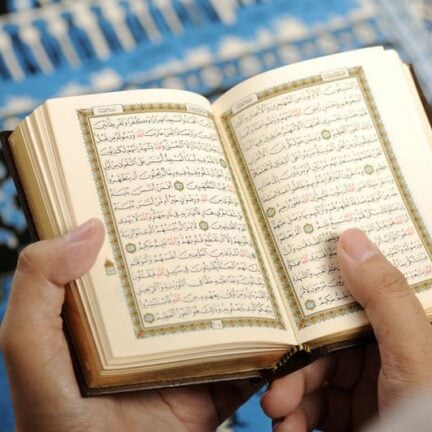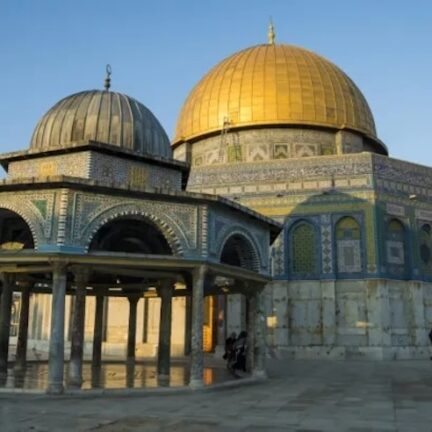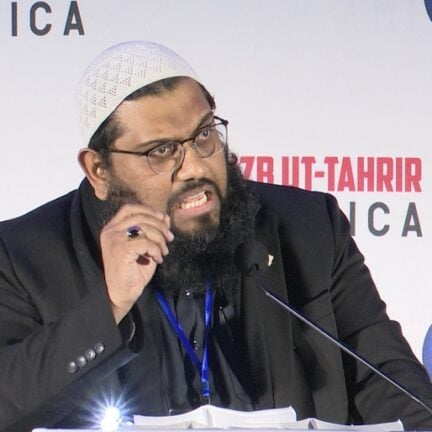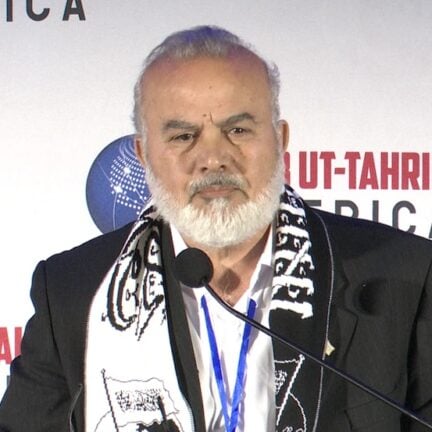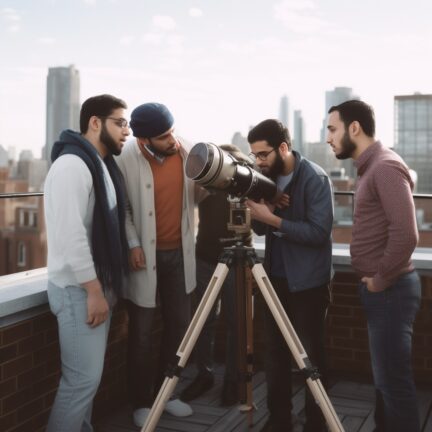The Khilafah is not a Police State
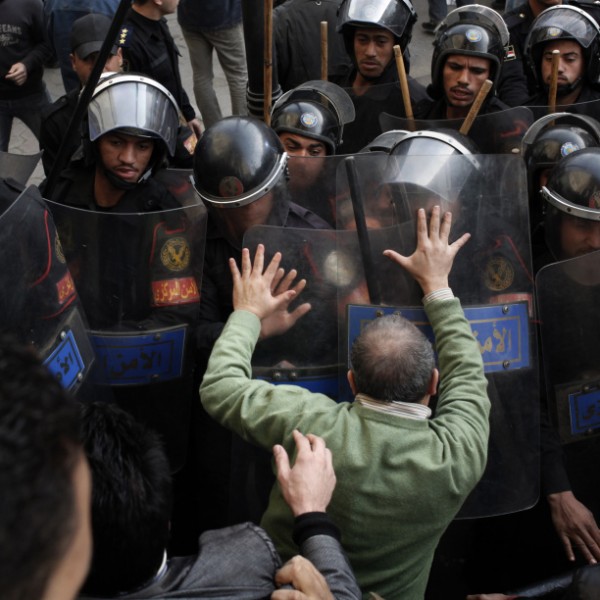
“O you who believe! avoid most of suspicion, for surely suspicion in some cases is a sin, and do not spy nor let some of you backbite others. Does one of you like to eat the flesh of his dead brother? But you abhor it; and be careful of (your duty to) Allah, surely Allah is Oft-returning (to mercy), Merciful.” TMQ 49:12
The situation that has prevailed in Egypt for the past half-century or more, has seen oppressive security measures, considerable police powers and lack of accountability of the country’s enforcement agencies. The 30 year long ‘emergency’ law that became the norm under Hosni Mubarak emboldened the police and security forces to take the law into their own hands.This created an environment which eroded the populations’ basic rights to account, speak and practice Islam.
This caused the people to become frustrated after having little or no recourse in the law to check the brutality of the police and security services. People disappeared, sat in prisons for years awaiting trial, convicted on arbitrary evidence, and tortured brutally, many dying in the process, particularly political prisoners. This hidden, unspoken world was exposed when the world witnessed undercover police personnel and their paid henchmen attacking protesters in Tahrir square at the height of the anti-Mubarak demonstrations.
To address these problems, the Islamic state will undertake, amongst other activities, the following:
- The enforcement agencies in the Khilafah will be placed in the constitution. This will prevent the introduction of arbitrary laws, and as the reference document against which enforcement agencies are held accountable. This will ensure that due process is required for any material changes in their scope and jurisdiction.
- Citizens of the Khilafah, Muslims and non-Muslims, will have the right to take any member of the enforcement agencies, regardless of rank, to court and/or register a complaint to an independent judiciary without any fear of punishment to his/her well being. The judicial process, including submitted evidence, will be open and transparent. Court hearings will be open to the public, and any member of the law enforcement agencies found guilty of abusing their position, violating the rights of any citizen or acting against the law will be punished according to the nature of the violation committed and discharged from their job.
- The enforcement agencies do not have the power or right to spy or to pry into people’s private lives. This will have an impact on collecting evidence through covert means, or surveillance which violates the privacy of citizens. The privacy of the home and citizen is considered sacrosanct. Their jurisdiction is restricted to enforcing the laws of the state, this being temporal and public matters
- Enforcement agencies will be paid a wage commensurate with their work, benchmarked appropriately to ensure it comfortably provide employees an essential living wage with an appropriate level of disposal income. This is, in part to keep employees from having to take on any additional employment and remove any incentive that could lead to any form of corruption due to insufficient income.
- In addition to ensuring that the law is not violated, the enforcement agencies will ensure that all of its citizens are protected and safe. Neighborhood watch schemes should not compensate for police shortcomings. The Khilafah provides sufficient funding to hire enough police employees to undertake day and night watches to provide an acceptable level of safety in all neighborhoods.
- Torture is absolutely forbidden and any employee found guilty of carrying out physical abuse or torture against any citizen, Muslim or non-Muslim, will be punished severely.
- The Khilafah will make all offices of state accountable and weed out corruption.
The myth often peddled by the West is that the authoritarian status quo in the Middle East is a consequence of Islam’s history in the region; that Muslims prefer strong leaders and have a preference for authoritarian figures. Worst still, they say that this attitude is entrenched in Islamic law and theology.
This absurd suggestion fails to acknowledge that the leadership currently plaguing the Muslim world is not a consequence of Islam, but arose following its demise. They replaced a system with a long history of stability, with checks and balances to prevent authoritarianism. This orientalist depiction of the Muslim psyche and of Islamic law and theology fails to recognise that the Mubaraks, Saddams and Gaddafis of the world are all a product of secular thinking, who acted to marginalize Islam from the conduct of the state. They lacked an independent will and entrenched western interests in the region. Islam will liberate people of the region from this entrenched and thoroughly authoritarian political landscape.
The Khilafah will do so in the following way:
- Accountability of the state is based on the following provisions: an independent judiciary with extensive powers including the ability to remove the head of state, individual rights to speech and hold to account any office or agency of the state, the requirement for multiple political parties and an Ummah council that has the power to scrutinize and overturn state policy, budgets and decision making
- The head of the judiciary is appointed by, but independent to the head of state. The Mahkamut al Madhalim is a dedicated office of the judiciary charged with checking the state’s compliance with the law. The Madhalim does not rely only on a plaintiff raising a specific complaint against the state, he is also charged with the on going monitoring of all organs of state. The Madhalim has the power to remove the head of state if he is found guilty of violating the law or is personally unable to continue with his role, e.g. is incapacitated. The office is charged with following due process in each situation, which comprises the collection and analysis of evidence, and may include a sitting head of state providing evidence during the course of a trial. The Madhalim will have access to information from the state relating to any specific case, and can request information on behalf of any citizen
- Individuals have the right to call to account any organ or employee of the state, regardless of rank or seniority; this includes the head of state. Complaints will be submitted to the above mentioned Madhalim office who will initiate a process of validating and following due process in establishing facts. The office also has the power to stipulate punishments. Individuals, Muslims and non-Muslims, are allowed the right to peaceful congregation and protest, and they are also allowed to seek out support to make representations to the state on their behalf.
- Multiple political parties premised on Islam are allowed to exist and operate openly within the Khilafah. Political parties are allowed to congregate, stage protests and utilise the media for the purposes of accounting the state. They are also allowed to actively canvass for candidates during elections for the head of state.
- The Ummah Council will consist of representatives from across the Khilafah and will include Muslims and non-Muslims. The council is designed not only to voice the opinions of the majority to the state, but also has the power to scrutinize and overturn state policy and analyze the budget. Elections for the seats on the council are held periodically.
- For the purposes of ensuring transparency and openness, the state will be required to make available documentation related to decision making where national security is not compromised. It is also required to make available details of its budget, tax revenues, expenditure from funds in the state treasury, wages and benefits provided to state employees and all information related to the collection, use and distribution of public money. State employees will be required to declare any conflict of interests and prevented from undertaking additional work or extra curricula engagements where these conflicts with acting as a state employee. Employment decisions will be scrutinized and based on an open criteria of merit alone in order to prevent the onset of nepotism. Any employee found guilty of corruption, taking bribes or advances the interests of friends or family will be put on trial and punished severely if found guilty, regardless of their rank or time served.
“O you who believe! avoid most of suspicion, for surely suspicion in some cases is a sin, and do not spy nor let some of you backbite others. Does one of you like to eat the flesh of his dead brother? But you abhor it; and be careful of (your duty to) Allah, surely Allah is Oft-returning (to mercy), Merciful.” TMQ 49:12
The situation that has prevailed in Egypt for the past half-century or more, has seen oppressive security measures, considerable police powers and lack of accountability of the country’s enforcement agencies. The 30 year long ‘emergency’ law that became the norm under Hosni Mubarak emboldened the police and security forces to take the law into their own hands.This created an environment which eroded the populations’ basic rights to account, speak and practice Islam.
This caused the people to become frustrated after having little or no recourse in the law to check the brutality of the police and security services. People disappeared, sat in prisons for years awaiting trial, convicted on arbitrary evidence, and tortured brutally, many dying in the process, particularly political prisoners. This hidden, unspoken world was exposed when the world witnessed undercover police personnel and their paid henchmen attacking protesters in Tahrir square at the height of the anti-Mubarak demonstrations.
To address these problems, the Islamic state will undertake, amongst other activities, the following:
- The enforcement agencies in the Khilafah will be placed in the constitution. This will prevent the introduction of arbitrary laws, and as the reference document against which enforcement agencies are held accountable. This will ensure that due process is required for any material changes in their scope and jurisdiction.
- Citizens of the Khilafah, Muslims and non-Muslims, will have the right to take any member of the enforcement agencies, regardless of rank, to court and/or register a complaint to an independent judiciary without any fear of punishment to his/her well being. The judicial process, including submitted evidence, will be open and transparent. Court hearings will be open to the public, and any member of the law enforcement agencies found guilty of abusing their position, violating the rights of any citizen or acting against the law will be punished according to the nature of the violation committed and discharged from their job.
- The enforcement agencies do not have the power or right to spy or to pry into people’s private lives. This will have an impact on collecting evidence through covert means, or surveillance which violates the privacy of citizens. The privacy of the home and citizen is considered sacrosanct. Their jurisdiction is restricted to enforcing the laws of the state, this being temporal and public matters
- Enforcement agencies will be paid a wage commensurate with their work, benchmarked appropriately to ensure it comfortably provide employees an essential living wage with an appropriate level of disposal income. This is, in part to keep employees from having to take on any additional employment and remove any incentive that could lead to any form of corruption due to insufficient income.
- In addition to ensuring that the law is not violated, the enforcement agencies will ensure that all of its citizens are protected and safe. Neighborhood watch schemes should not compensate for police shortcomings. The Khilafah provides sufficient funding to hire enough police employees to undertake day and night watches to provide an acceptable level of safety in all neighborhoods.
- Torture is absolutely forbidden and any employee found guilty of carrying out physical abuse or torture against any citizen, Muslim or non-Muslim, will be punished severely.
- The Khilafah will make all offices of state accountable and weed out corruption.
The myth often peddled by the West is that the authoritarian status quo in the Middle East is a consequence of Islam’s history in the region; that Muslims prefer strong leaders and have a preference for authoritarian figures. Worst still, they say that this attitude is entrenched in Islamic law and theology.
This absurd suggestion fails to acknowledge that the leadership currently plaguing the Muslim world is not a consequence of Islam, but arose following its demise. They replaced a system with a long history of stability, with checks and balances to prevent authoritarianism. This orientalist depiction of the Muslim psyche and of Islamic law and theology fails to recognise that the Mubaraks, Saddams and Gaddafis of the world are all a product of secular thinking, who acted to marginalize Islam from the conduct of the state. They lacked an independent will and entrenched western interests in the region. Islam will liberate people of the region from this entrenched and thoroughly authoritarian political landscape.
The Khilafah will do so in the following way:
- Accountability of the state is based on the following provisions: an independent judiciary with extensive powers including the ability to remove the head of state, individual rights to speech and hold to account any office or agency of the state, the requirement for multiple political parties and an Ummah council that has the power to scrutinize and overturn state policy, budgets and decision making
- The head of the judiciary is appointed by, but independent to the head of state. The Mahkamut al Madhalim is a dedicated office of the judiciary charged with checking the state’s compliance with the law. The Madhalim does not rely only on a plaintiff raising a specific complaint against the state, he is also charged with the on going monitoring of all organs of state. The Madhalim has the power to remove the head of state if he is found guilty of violating the law or is personally unable to continue with his role, e.g. is incapacitated. The office is charged with following due process in each situation, which comprises the collection and analysis of evidence, and may include a sitting head of state providing evidence during the course of a trial. The Madhalim will have access to information from the state relating to any specific case, and can request information on behalf of any citizen
- Individuals have the right to call to account any organ or employee of the state, regardless of rank or seniority; this includes the head of state. Complaints will be submitted to the above mentioned Madhalim office who will initiate a process of validating and following due process in establishing facts. The office also has the power to stipulate punishments. Individuals, Muslims and non-Muslims, are allowed the right to peaceful congregation and protest, and they are also allowed to seek out support to make representations to the state on their behalf.
- Multiple political parties premised on Islam are allowed to exist and operate openly within the Khilafah. Political parties are allowed to congregate, stage protests and utilise the media for the purposes of accounting the state. They are also allowed to actively canvass for candidates during elections for the head of state.
- The Ummah Council will consist of representatives from across the Khilafah and will include Muslims and non-Muslims. The council is designed not only to voice the opinions of the majority to the state, but also has the power to scrutinize and overturn state policy and analyze the budget. Elections for the seats on the council are held periodically.
- For the purposes of ensuring transparency and openness, the state will be required to make available documentation related to decision making where national security is not compromised. It is also required to make available details of its budget, tax revenues, expenditure from funds in the state treasury, wages and benefits provided to state employees and all information related to the collection, use and distribution of public money. State employees will be required to declare any conflict of interests and prevented from undertaking additional work or extra curricula engagements where these conflicts with acting as a state employee. Employment decisions will be scrutinized and based on an open criteria of merit alone in order to prevent the onset of nepotism. Any employee found guilty of corruption, taking bribes or advances the interests of friends or family will be put on trial and punished severely if found guilty, regardless of their rank or time served.

